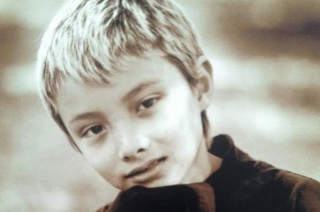Bullying
Why Therapy Failed Elliot Rodger
Therapists are not trained to teach clients how to stop being bullied/rejected
Posted June 17, 2014
Author's Transparency Declaration: I have a financial interest in a company that offers products and services that may be related to the content of my writings.
The recent horrific murder rampage by Elliot Rodger in Santa Barbara, California, on May 23 got the country reeling again. We wonder why we can’t stop these senseless massacres, virtually all committed by young people who feel bullied and rejected by their peers. For the fifteen years since the Columbine bloodbath, the entire modern world has gone into high gear trying to eliminate bullying in the hope that everyone will feel accepted and no one will be motivated to embark on a vengeful killing spree. Despite our massive efforts, these random acts of horrific violence continue to occur.

These tragedies are typically followed by public outcries for improved access to mental health services. However, we seem to forget that most of the perpetrators had received mental health services and that schools and society have made bullying prevention a major goal. All students are aware they can turn to adult authorities when they are bullied. Elliot Rodger repeatedly complained to his parents that he was being bullied and rejected, and they repeatedly got him help from mental heath professionals.
Read the autobiography of Elliot Rodger
It is also important to recognize the true magnitude of the problem. We should not be limiting our concern with preventing massacres. For every one of these bullied young people who go on a killing rampage, there are literally thousands who suffer the same type of agony over social rejection and fantasize revenge against their perceived tormentors but don’t end up killing anyone. Read Brian Levenson’s excellent article in Slate, “I could have been Elliot Rodger.” When people suffer from feelings of relentless rejection, their lives are hell. They are far more likely to commit suicide than to kill others. But even if they don’t resort to violence, they deserve help.
Another article in Slate raises this issue, asking why numerous therapists and law enforcement officers failed to prevent Elliot’s killing spree. It informs us it’s because it is hard to predict whether someone is going to go on a killing spree, and that laws protecting individual rights make it difficult to arrest or hospitalize people who sound rational and haven’t yet committed a crime. Thus, the article vindicates the therapy profession for failing to prevent these horrors.
I suggest there is a more basic reason for therapists’ failure to prevent their bullied and rejected clients from becoming mass murderers: Therapists are not adequately trained to help their clients stop being bullied and rejected. Like Elliot Rodger, these young people desperately want to live. They hope someone will show up to relieve their misery so that they won’t have to go through with their murderous/suicidal plans. Had their therapists known how to teach them to stop being bullied and rejected by their peers, they and their victims would still be alive.
My own psychological training did, in fact, provide me with the elements necessary for helping such kids, but I was never formally taught how to do it. It was simply a matter of luck that I happened to put these elements together to form the techniques I use. Many professionals who are more intelligent, educated and talented than me just didn’t have this luck.
If I am a typically trained therapist and receive clients who complain to me that they are being bullied and rejected by their peers, these are some of the things I am likely to do. I will listen to them with compassion, validating their misery over the cruel treatment by their peers. I will try to boost their self-esteem by encouraging them to recognize how wonderful they are despite the ridicule of their peers. I will explore in depth their family history and their relationships with their parents and siblings. If they tell me they are being treated unfairly by their family members, I will show compassion for that as well, and possibly make a causal connection between their abuse at home and their abuse in school. If I suspect the parents are indeed treating their child inadequately, I may decide to include them in treatment to improve their parenting.
If I keep myself professionally updated with the anti-bullying research and recommendations, I would be doing everything in my power to avoid “blaming victims.” I would be informing my clients that they have absolutely nothing to do with the way they are being treated—that their misery is solely the fault of their bullies, who are immature jerks; that words can hurt them even more than fists; that they have a right to be treated with respect and acceptance by everyone; that it’s the school’s responsibility to make sure they aren’t bullied; that their bullies deserve to be punished; that their fellow students are supposed to befriend victims and loners and stand up for them against their bullies. I will encourage their parents to threaten the school administrators with legal action if they fail to make the bullying stop. I may even contact the school on my own to demand that it enforce my clients’ legal rights to attend school without being bullied.
In other words, I would be reinforcing the very victim mentality that is my clients’ undoing. Like Elliot Rodger, they are already seething with anger, hatred and desire for revenge against their bullies. They already resent their peers for ignoring them. They are already convinced that they bear no responsibility for the way others treat them. They have already convinced themselves that they are morally superior to the despicable kids who belittle them. They are already mad at the school for failing to protect them.
If I am a psychiatrist, I am likely to prescribe antidepressants in the hope of improving their mood. However, unless the drug succeeds in making them indifferent to bullying and rejection, it will be worthless. In fact, my prescribing medication may make them think they must be mentally ill, further eroding their self-concept. Furthermore, one of the recognized side effects of these medications–or of stopping to take the medication–is a possible increase in suicidal and violent thinking. A frightening number of rampage shooters had been on psychiatric medication.
Ironically, my therapeutic efforts may be unintentionally pushing my clients further down the path of destruction.
But it wouldn’t be my fault. I would be doing precisely what I have been taught as a professional. It’s just that what I’ve been taught rarely helps clients to stop being bullied and rejected.
Moreover, giving good advice often doesn’t work, either. Even therapists who understand the dynamics of bullying and what it takes to make it stop often fail to help their clients because giving advice is intellectual. Teaching through role-playing is far more effective than verbal advice. It makes the experience emotional and physical as well. However, most therapists aren’t taught to use role-playing as part of their basic training. If they do learn some role-playing, it may be in a continuing education course. But it is not one of the standard components of the therapy toolbox.
The way to prevent random massacres, therefore, is not to make mental health services more readily available, but to equip mental health professionals with effective tools for helping their clients stop being bullied and rejected.
Bullying is extremely painful for its victims, and leading bullying experts insist that it is a complex problem that requires a complex solution: the intensive involvement of the entire community. Because they don’t have a simple, reliable method for teaching people how to stop being bullied, they believe the solution must be complex. Since they don't know how to make the victim change, they believe that everyone in the victim's environment must do the changing. However, the effort required to solve a problem bears absolutely no relationship to the degree of pain caused by the problem. I know of no easier problem to help clients solve than being bullied. It’s far easier than helping people save their marriages or get rid of unwanted habits. My personal success rate with such clients is at least 90%, and the professionals I have trained are experiencing similar success rates.
The “complex” problem of bullying is a result of a simple illusion. When we’re being bullied—meaning picked on repeatedly by the same people–we believe that we’re getting upset because we are being bullied. The truth is really the other way around. We are being bullied because we are getting upset. We just can’t see it because the bullying comes first and the upset feeling comes afterwards. We tend to perceive that the first event causes the second event, so we don’t see how our getting upset is the reason our bullies continue coming along to antagonize us. In our minds, we are trying to stop them from bullying us. We don’t realize our desire to stop them is what’s making them continue.
If it’s hard to grasp the concept that the second event causes the first one, you need look no farther than employment. You go to work, and then you get a paycheck. If you didn’t get the paycheck afterwards, you wouldn’t have gone to work.
The difference between employment and bullying is that you consciously enter into an agreement to work in return for pay, while you don’t enter into such an agreement to be bullied. However, it is irrelevant whether the process is conscious or not. Many, if not most, of the reinforcers that shape our behavior are not within our conscious awareness.
It is extremely difficult to continue picking on someone who is not getting upset. This is easily taught through role-playing, and you can see this in action in the video clip at the link below. Once clients grasp this, they can make a conscious decision to stop getting upset, and after a few days during which their bullies try harder to upset them (the extinction burst, in behavioral psychology terms), they stop being bullied. This is followed by a growth in self-confidence, self-esteem and resilience. Their popularity also improves, as others are no longer embarrassed to be seen in the company of a “loser.”
The problem of bullying is so common, devastating, yet easy to solve that it’s about time the world’s counselors and therapists become trained to help their bullied clients.
Watch how easy it is to stop being verbally bullied (other forms of bullying also have simple remedies): https://www.youtube.com/watch?v=c_JVojbfNV0




